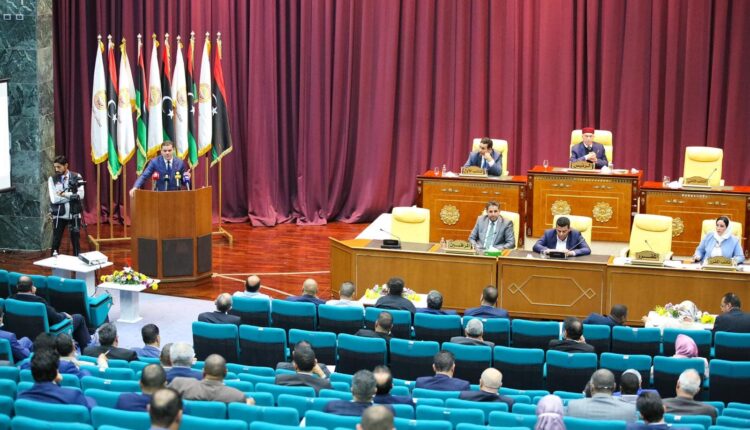Libyan Parliament rejected GNU’s proposal for the national budget
Libya's House of Representatives returns the proposed budget to the Government for amendments and review

According to HoR spokesman Abdullah Belhaq, the majority of MPs voted to return the budget bill to the government for amendment in line with the HoR’s recommendations.
The HoR’s Planning and Finance Committee proposed that public spending in the general budget be rationalized so that the first chapter would not surpass 33.5 billion dinars, with the need to minimize some of this section’s articles as much as possible and the second chapter to nine billion dinars.
The committee also stressed the need to restructure Chapter 3 to keep costs under 15 billion dinars, with an emphasis on assisting the National Oil Corporation in increasing production rates and promoting electricity projects in accordance with a well-thought-out development plan.
It also emphasized the importance of limiting certain provisions of Chapter 4 to no more than 20 billion dinars, as well as creating a one-billion-dinar budget fund.
Several members of parliament have expressed concern that the 96 billion dinar budget is large a sum for the short time the GNU is expected to be in office and particularly given the country’s unstable economic situation.
Libya’s Government of National Unity submitted its proposed budget to parliament late last March while also urging the house of representatives to approve it in a quick fashion so that the government is able to perform its duties.
The proposed budget was divided into five sections, with the largest sum of 33 billion going to state salaries, followed by subsides at 24 billion, closely trailed by projects and development at 22 billion and the remaining 17 billion was split between operational spending at 12 billion and an emergency budget at 5 billion.
The primary source for the yet-to-be approved budget is Libya’s oil and gas sector, the country’s principal source of income, with oil revenues comprising 89 billion of the overall budget, and just 4 billion be provided by non-oil related revenues.
How to submit an Op-Ed: Libyan Express accepts opinion articles on a wide range of topics. Submissions may be sent to oped@libyanexpress.com. Please include ‘Op-Ed’ in the subject line.
- Haftar to fly to the US with family, pretending it’s a Libyan official visit - September 13, 2021
- Haftar hires ex-Clinton aide, ex-Republican leader to lobby Washington for Libya elections’ run - September 09, 2021
- Al-Saadi Gaddafi, late dictator’s son, released from Libyan prison - September 06, 2021


